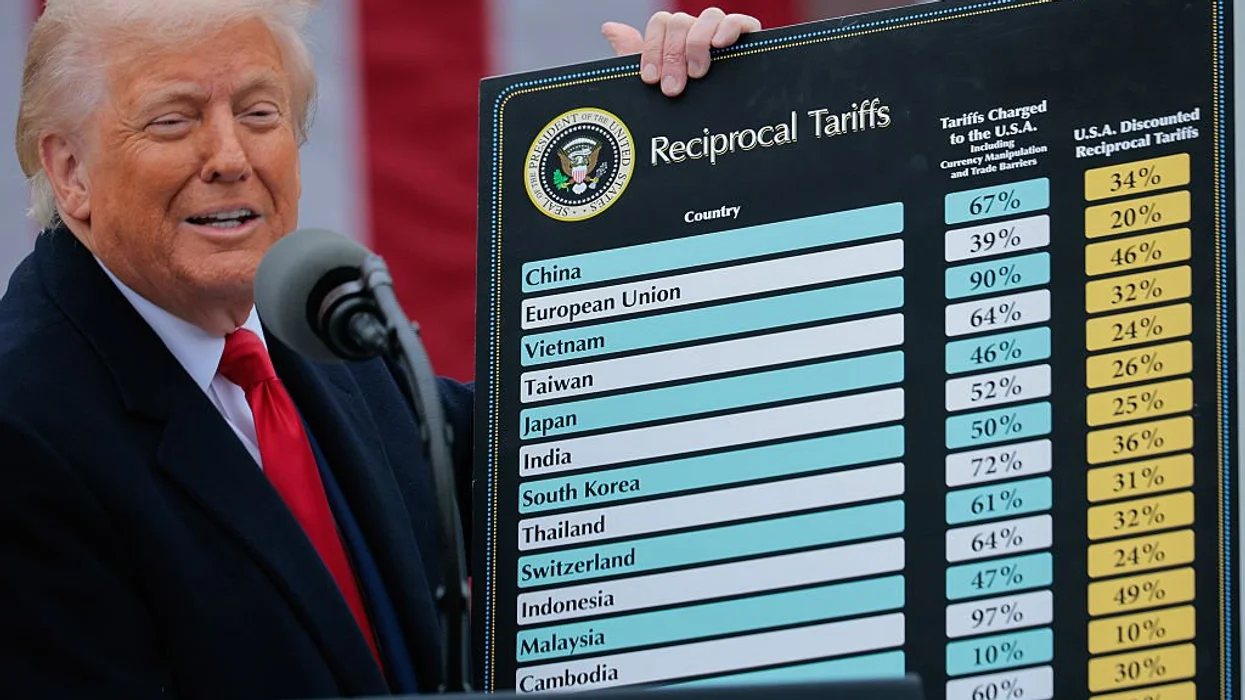
© 2025 Blaze Media LLC. All rights reserved.
How Much Does Humanity Weigh? Hint: The U.S. Accounts for a Third of World Weight
June 19, 2012
"...it is not how many mouths we have to feed, it is how much flesh we have to feed.”

With the world population eclipsing 7 billion people last last year, some are weighing all the options to maintain sustainable growth.
Taking this literally, a new review by biologists has calculated the total mass of humanity from the population and other metrics known in 2005.
According to the research published in BMC Public Health journal, the total mass of humans on Earth is 316 million tons (287 million tonnes). This equates to 5,400 Titanics, according to New Scientist. Of that, 16.5 million tons are from an overweight segment of the population. To put this into perspective, the amount of weight contributed from overweight individuals is equal to 242 million extra people on the planet.
Of these metrics, MSNBC further explains, that although the United States only makes up 6 percent of the world population, it is responsible for a third of the total weight. Asia, on the other hand, accounts for 61 percent of the world population and only 13 percent of its total weight.
"When people talk about sustainability, they quickly get into concerns about population," Ian Roberts of the London School of Hygiene & Tropical Medicine in the UK said, according to New Scientist. Roberts said that shouldn't be the primary concern.
In fact, when the United Nations announced the world population had hit the 7 billion mark in November, some suggested birth control and other measures to curb growth and subsequent strain on resources. What the researchers conducting this calculation of global weight are saying is that reducing the amount people eat -- and therefore weight -- would make more of a difference than stifling just population growth, according to Time.
The Telegraph has more from Roberts on this perception:
“People tend to think the main threat to the environment is the growing population caused by poor mothers in Africa having too many babies. But this measure of biomass is more relevant.“In considering how many people the world can support, it is not how many mouths we have to feed, it is how much flesh we have to feed.”
Roberts said humanity as a whole doesn't "move their bodies as much as they're programmed to eat." Part of this is seen in a correlation between an overweight or obese population and gasoline consumption (a.k.a. driving everywhere), according to BBC. Addressing both population and "fatness," according to Roberts, would help ensure a sustainable future.
This study is being presented at the Rio20+ sustainability conference hosted by the U.N.
Want to leave a tip?
We answer to you. Help keep our content free of advertisers and big tech censorship by leaving a tip today.
Want to join the conversation?
Already a subscriber?
more stories
Sign up for the Blaze newsletter
By signing up, you agree to our Privacy Policy and Terms of Use, and agree to receive content that may sometimes include advertisements. You may opt out at any time.
Related Content
© 2025 Blaze Media LLC. All rights reserved.
Get the stories that matter most delivered directly to your inbox.
By signing up, you agree to our Privacy Policy and Terms of Use, and agree to receive content that may sometimes include advertisements. You may opt out at any time.





